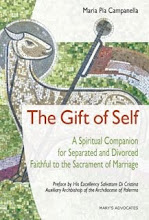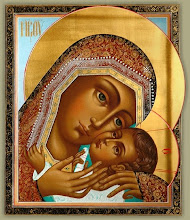
Saturday, March 28, 2009
Thursday, March 26, 2009
Divorce is ugly. Divorce is evil. Divorce hurts. I have recieved court documents regarding my impending divorce. Sadly, even being married with a Covenant license doesn't prevent divorce. Anyway on some of the court documents at the top is written something that made me stop and think. It says the petitioning spouses name vs. the respondant spouses name. It's the same as when two boxers, wrestlers, cage fighters, or any kind of fighters get ready to fight. They introduce them saying name of fighter vs. name of fighter. The term “vs.” stands for Latin versus (meaning “against”). When I saw this on the court document I thought, I don't want to be in a situation where it's me versus my wife like boxers or cage fighters. I suppose the term "vs." or "versus" goes along with the whole theme of divorce though. It is just the opposite of what marriage stands for. In marriage we are supposed to be unified, together, "one flesh". It is supposed to be "us" together on one side of the versus and whatever of lifes situations that comes our way that we need to tackle together on the other side. It hurts when you see in writing that you and your spouse are "against" each other. How does someone who loves their spouse, and doesn't believe in divorce not be "against" their spouse when divorce is being forced on them? I ask for prayers that I can be as un-"against" my wife as I can while also not giving in to divorce, and that I may keep from pointing out her faults if mine should come up. With God's hellp I will reject and refuse to get caught up in the "versus" mentality of divorce.
Thursday, March 19, 2009
I think this is a great and yet simple and to the point. This is what a true Catholic needs to live by. People who call themselves Catholic but don't beilieve what the Church teaches are cafeteria Catholics. They pick and choose what they want to believe because they think they know better than the Church. Not everything the Church teaches is easy, but we are called to abide and live in accordance to what it teaches.
If you accept the Church as and infallible guide then you have to accept that abortion, euthanasia, and divorce are all grave sins, and that they are all a part of the culture of death. Far to many people call themselves Catholic and yet believe those things are ok, politicians not excluded.
Saturday, March 14, 2009
Divorced Saints?
St. Fabiola belonged to the patrician Roman family of the Fabia. She had been married to a man who led so vicious a life that to live with him was impossible. She obtained a divorce from him according to Roman law, and, contrary to the ordinances of the Church, she entered upon a second union before the death of her first husband. On the day before Easter, following the death of her second consort, she appeared before the gates of the Lateran basilica, dressed in penitential garb, and did penance in public for her sin, an act which made a great impression upon the Christian population of Rome. The pope received her formally again into full communion with the Church.
St. Guntramnus grew up without the faith.. Son of King Clotaire, and Saint Clothildis, Brother of King Charibert, and King Sigebert. King of Orleans, and Burgundy in 561. Married to Mercatrude, Peacemaker. He divorced Mercatrude; some time later she became seriously ill, and when her physician could not cure her, he had the doctor murdered. Upon his conversion to Christianity he was so overcome with remorse for the acts of his prior life, he devoted his energy and fortune to building up the Church. Protector of the oppressed, care-giver to the sick, tender parent to his subjects, open with alms, especially during plague and famine. He strictly and justly enforced the law without respect to person, yet forgave offenses against himself, including two attempted assassins.
St. Helen was a native of Bithynia, and a daughter of an inn-keeper. In spite of her humble birth, she married a Roman soldier, the then Roman general Constantius I Chlorus about 270. Constantine, her son - who became Constantine the Great, was born in Nish, Serbia soon after, in 272. In 293, when Constantius was made Caesar, or junior emperor, he was persuaded to divorce Helen to marry Theodora the stepdaughter of Emperor Maximian. He lived for fourteen years after the divorce of St. Helen, and when he died at York in 306 his troops at York proclaimed their son Constantine caesar.
Perhaps St. Fabiola's story is the best illustration of the seriousness of divorce and remarriage while your first spouse is still living, as she had to penance before being returned to full communion with the church. We can pray and ask these Saints to intercede for us, as they are all three patron saints of divorce and difficult marriages.
Sunday, March 8, 2009
Pope Benedict addresses the Roman Rota!
Friday, March 6, 2009
Fulton J. Sheen's "Three To Get Married"!
A bond is a bond no matter how you try to argue it.
The basis of unity is the fact that in this bond two persons are joined together so as to become "one flesh." This inviolable bond, according to Our Divine Savior, excludes not only desiring another partner but also entering into another union while the partner lives. Our Lord even forbade unlawful desires: "But I tell you that he who casts his eyes on a woman so as to lust after her has already committed adultery with her in his heart." (Matt. 5:28) These words cannot be annulled even by consent of one of the partners, for they express a law of God and nature which no one can break. He directly forbade any remarriage while one bond endured. Even though there might be a legitimate reason for the partners separating, this would not give either one the right to marry again.
Here I love how he puts it into perspective, how can you argue with it?
To say, two years after marriage: "I gave my oath at the altar, yes, but since I am in love with someone else, God would not want me to keep my oath," is like saying: "I promised not to steal my neighbor's chickens, but since I fell in love with that handsome Plymouth Rock, God would not want me to keep my promise."
The unification from the duality of flesh of husband and wife is one of the reasons why the Savior forbade the breaking of the bond. Both men and women, in the moment of the knowing, receive a gift which neither ever knew before, and which they can never know again except by repetition. The resulting psychic changes are as great as the somatic. The woman can never return again to virginity; the man can never return again to ignorance. Something has happened to make them one, and from that oneness comes fidelity, so long as either has a body.
In marriage everything should be ours not mine.
In the happy home there is no such thing as saying: "This is my chair; this is yours." But when love leaves, then comes the lawyer, the division of property, and an equality which kills all love. Genuine love excludes all servility but includes a surrender to the other of the peculiar advantages of each.
As the Scriptures tell us: "The unbelieving husband is sanctified by the believing wife; and the unbelieving wife is sanctified by the believing husband." (1 Cor. 7:14) This is one of the most forgotten texts on the subject of marriage. It applies to the spiritual order the common experiences of the physical. If a husband is ill, the wife will nurse him back to health. In the spiritual order, the one who has faith and love of God will take on the burdens of the unbeliever, such as drunkenness, infidelity, and mental cruelty, for the sake of his soul. What a blood transfusion is to the body, reparation for the sins of another is to the spirit. Instead of separating when there are difficulties and trials, the Christian solution is to bear the other as a cross for the sake of his sanctification. The wife can redeem the husband, and the husband the wife.
Again the bond is simply unbreakable by man no matter how difficult things appear to be.
The key to the solution of crosses of married life, if they come, is not in the breaking of the bond, for that is unbreakable. Rather, it is the utilization of its sufferings for self, for children, and for the spouse, who for the present at least is the cause of the suffering.
The noblest love of a spouse can be exposed to the negation of love, because if love is not returned by the other spouse, it is no reason for abandoning love altogether. When a husband gives up an unloving wife, or an unloving wife gives up an unloving husband, there is a denunciation of love in the universe, a betrayal of the Love of God Who loved us even while we were sinners.
Nothing can justify breaking the bond!
Because the Christian marriage is the fleshly symbol of the Divine Espousals of Christ and His Bride the Church, no infidelity or unworthiness can justify the breaking of the bond for the sake of contracting a new marriage. Separation may be allowed; but, even then, the faithful one must be redemptive of the other. Faithfulness to the bond is here not to be interpreted as a passive resignation to a duty. It is not the nature of love ever to abandon the one in moral need, any more than it is the nature of a mother's love to abandon a child with polio.
This one really touched my heart and it is one I will be living by.
The "believing wife" or the "believing husband," whichever the case may be, refuses entreaties to another marriage (while the spouse is living) not for the negative reason, "The Church will not allow me," but for the positive reason, because "I love in a Christian way." Each refusal is a deepening of the first love! Fidelity in crisis is therefore not something one "puts up with" or "makes the best of"; it is something that is ardently chosen for love's sake.
No person in all the world is made happier by the breaking of a pledged love.
Since marital love is the shadow cast on earth by the love of Christ for His Church, then it must have Christ's redemptive quality. As Christ delivered Himself up for His Spouse, so there will be some wives and some husbands who will deliver themselves up to Golgotha for the sake of their spouses. The young suitor does not abandon his beloved because she falls in the mud. Why then, when there is moral dirt into which she tumbles, should the husband claim that love does not demand the rescue?
As you can see Fulton J. Sheen is very passionate in his writing. It is very moving. If you want to read more of "Three To Get Married" you can read it online at the EWTN link below:
http://www.ewtn.com/library/MARRIAGE/3GETMARR.TXT
If you want to buy the actual book you can click the picture of the book off to the side of the blog. Enjoy!
Wednesday, March 4, 2009
A true witness to what marriage is!
http://www.lifesitenews.com/ldn/2009/feb/09021802.html
Tuesday, March 3, 2009
I offer a simple quote that to me is very true. Even in the midst of a pending divorce.
"A man's greatest treasure is his wife, she is a gift from the Lord!" Sometimes we forget
that our spouse is a gift, and we should always treat them as such. Our children are a gift as well.
We are never gauranteed tomorrow with the ones we love, and so we should always
treat them as a gift and never stop telling them how much we love them.
I love my family more than words can begin to say. Please pray for my hurting family.



















